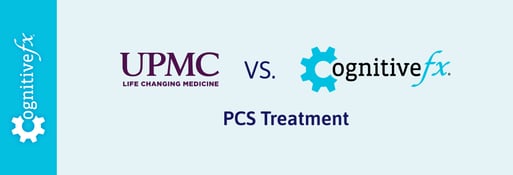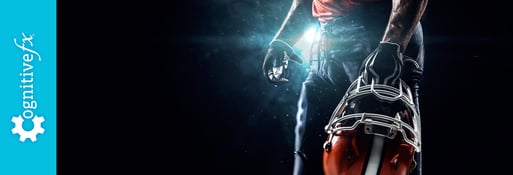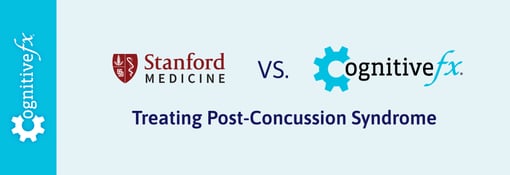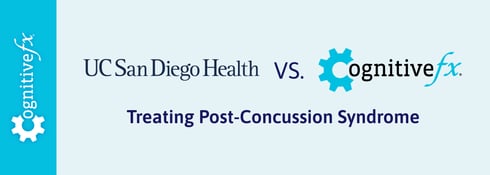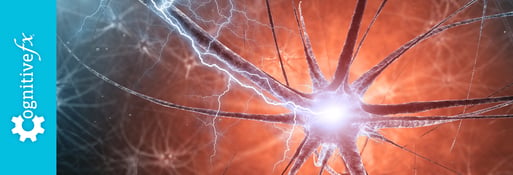By Mark Allen, Director of Research
The Enhanced Performance in Cognition - EPIC concussion treatment provided at Cognitive FX is a highly effective approach to concussion rehabilitation. We have developed an optimal program for recovery that typically lasts about 1 week, with intensive daily therapy. Each day includes a cycle through specific therapies for each patient guided by her/his brain activation images (fNCI).
It might be surprising to some that rehabilitation from a concussion can occur so quickly, even when a patient has been suffering concussion symptoms for a long period of time. Below we explain some basic principles about the brain and concussions to help you understand why recovery from a concussion can occur so quickly.
Concussion Symptoms
When the brain is concussed during a mild traumatic brain injury, permanent damage to brain tissue does occur very often. In fact, this is what distinguishes a concussion from other forms of brain injury trauma. However, with most concussions, there are significant disruptions to normal brain function. These disruptions are what cause people to feel cognitive, emotional, and physical symptoms of a concussion including difficulty concentrating, along with irritability, and fatigue. Basically, as long as a person continues to feel these symptoms, the neural disruption has not resolved.
Concussion Causes
So what is this neural disruption?
As said above, while most neural damage suffered during concussion is not permanent, damage does occur. Mechanical forces compress, stretch, and twist brain cells causing the tiny structures within some cells to breakdown. The time it takes for the brain to repair this damage can vary depending on the individual and the nature of the head trauma. However, during the repair process, brain cells operate in a different way than usual.
Because of the temporary damage, many brain cells may adopt alternative methods for doing things like metabolizing energy, sending and interpreting signals, and managing neurochemicals. Nevertheless, even during the peak of damage, the brain does the best it can relying on these less-effective strategies to carry out normal functioning.
Concussion Symptoms and EPIC Treatment
For some people, namely those suffering persistent post-concussion syndrome (PCS), it seems that the brain may continue to use the non-optimal processing strategies that it adopted during the repair process. In such cases, the patient may continue suffering cognitive, physical, and emotional symptoms long after the concussion occurred.
As an analogy, imagine someone who suffers a knee injury and adopts a limp in order to avoid pain and compensate for weakness in the injured knee. In many cases, people continue to compensate their gait long after the injury has healed, which can lead to unnecessary stress on other joints, such as the hip or ankle. A skilled physical therapist, however, can help the patient identify and correct these “bad habits” and return the patient to a normal gait within a relatively short time.
In a similar way, EPIC Concussion Treatment provided by Cognitive FX is an approach that identifies and corrects maladaptive processing in the brain. Like any effective therapy, success requires commitment, effort, and skilled guidance—but significant and lasting results can occur very quick. After all, the brain is essentially being guided back to how it has normally done things for most of one’s life. The trick is coaxing the brain back to familiar territory. This is where EPIC concussion treatment is like no other treatment offered in the world.
fNCI Technology for Assessment
The fNCI scan is an effective way to detect possible areas of this atypical and inefficient neural functioning and monitor progress as the brain returns to its standard way of processing.
fNCI gives us the ability to clearly see which regions are hyper- or hypo-active. This then helps our multidiciplinary team create unique and individual protocols to help each individual to regain optimal neuronal function.
Working Together for Positive Lasting Outcomes
The comprehensive approach we take with our team, fNCI technology, and our patients brings significant outcomes to our patients. With our continued research we are finding these outcomes and the effects of treatment are lasting and influencing the lives of patients in very postive ways.




